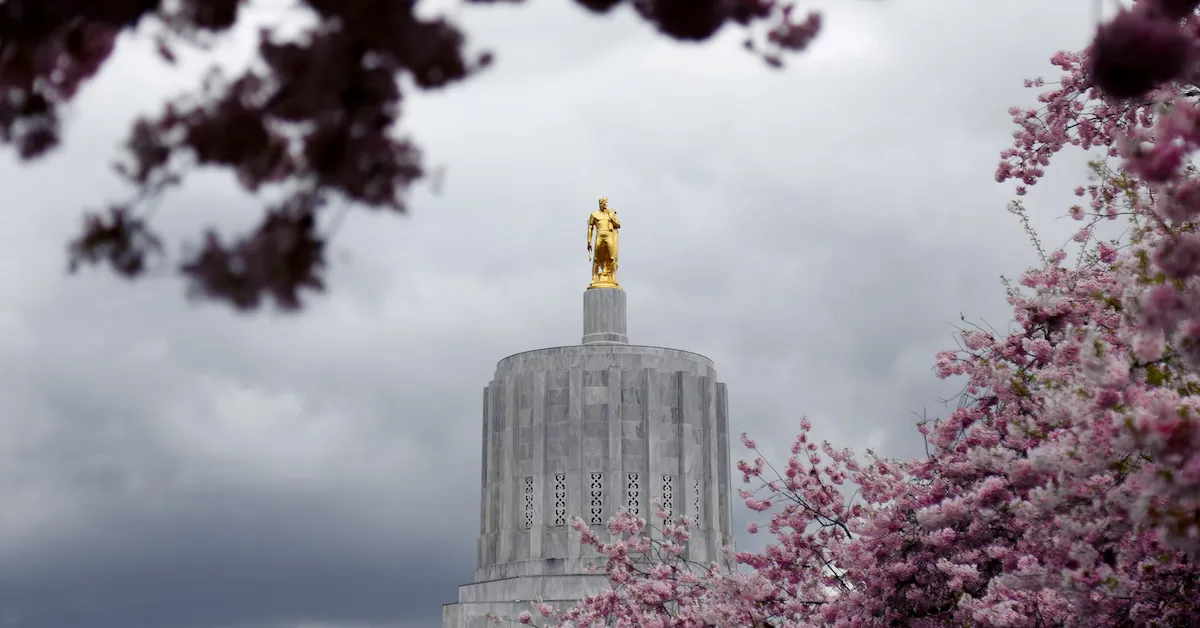8 May 2025
Bitcoin Magazine

Three New U.S. State-Level Bitcoin Bills Signed Into Law
This week, three U.S. states have enacted bitcoin-related bills into law.
On Tuesday, New Hampshire became the first state to sign into law a bill that would allow for the creation of a strategic bitcoin reserve (SBR).
On Wednesday, Arizona enacted its second bill related to bitcoin, blockchain, and digital assets.
Also on Wednesday, Oregon’s governor signed a bill into law that updates the state’s commercial code to have it recognize digital assets such as bitcoin as collateral.
New Hampshire Can Now Establish An SBR
On Tuesday, New Hampshire signed HB302 into law, making it the first state in U.S. history with the legal footing to create an SBR.
The new law enables the state treasurer to invest in digital assets that have a market cap of over $500 billion. (Bitcoin is the only digital asset that currently meets this criteria.)
While the law doesn’t specifically call for the creation of an SBR, it does enable the state’s treasurer to create one.
This historic law was enacted thanks in part to the efforts of Rep. Keith Ammon, the primary sponsor for this bitcoin-related bill as well as others currently working their way through New Hampshire’s state legislature.
The enactment of this new law came on the heels of Arizona almost enacting a similar bill into law.
Arizona Governor Vetoes One Bitcoin Bill But Signs Another
On May 2, Arizona Governor Katie Hobbs vetoed SB1025, which would have enabled the state treasurer and retirement system to invest 10% of their available funds into virtual currencies.
The text in the bill stated that the bill may be cited as the “Arizona Strategic Bitcoin Reserve Act” and it stipulated that the term virtual currency refers to “a digital representation of value that functions as a medium of exchange, a unit of account and a store of value other than a representation of the United States dollar or a foreign currency.”
Many were quick to highlight that Governor Hobbs’ vetoing of this bill was a political misstep.
The message may have reached Governor Hobbs, as, yesterday, she signed HB2749, a bill that also establishes a state-level digital assets reserve, into law.
HB2749 amends existing state statutes on unclaimed financial property to enable the state to claim bitcoin or other digital assets that have been “abandoned” or “unclaimed” after three years.
As per this new law, Arizona will consider digital assets abandoned or unclaimed when the owner of the digital assets has not electronically accessed a digital assets account, conducted transactions in a digital assets account, and/or acted on any related account held by the same owner.
The unclaimed bitcoin and other digital assets that the state collects can be moved into a reserve.
This is the second bitcoin-related bill Governor Hobbs signed in recent weeks.
She also signed HB2342 into law on April 18.
This new law stipulates that counties may not prohibit individuals from lawfully accessing or using computational power or from running a blockchain node in a residence.
New Oregon Law Recognizes Bitcoin As Collateral
Yesterday, Oregon’s Governor Tina Kotek signed SB167 into law.
The new law updates Oregon’s Uniform Commercial Code (UCC) to incorporate digital assets.
The new law amends Article 9 of the UCC, allowing digital assets such as bitcoin to be used as collateral for mortgage payments, for example.
It also introduces Article 12 to the UCC, which serves to establish a legal framework for “controllable electronic records,” which include cryptocurrencies and tokenized records.
The new law sets the groundwork for bitcoin and other digital assets to be used within traditional financial products in Oregon.
Picking Up The Pace
Before this week, only three other bitcoin-related bills had been enacted into law.
These include the following:
- Utah’s HB0230, which was signed by Utah’s governor on March 12 and which established definitions and a regulatory framework for digital assets
- Kentucky’s HB701, which was signed by Kentucky’s governor on March 24 and which provided definitions and protections for individuals and businesses engaging with digital assets
- Arizona’s HB2342, which I discussed earlier in this piece
If the activity we saw this week is any indication of what is to come, we may see much more proposed Bitcoin legislation codified into law in the coming weeks and months.
This post Three New U.S. State-Level Bitcoin Bills Signed Into Law first appeared on Bitcoin Magazine and is written by Frank Corva.
